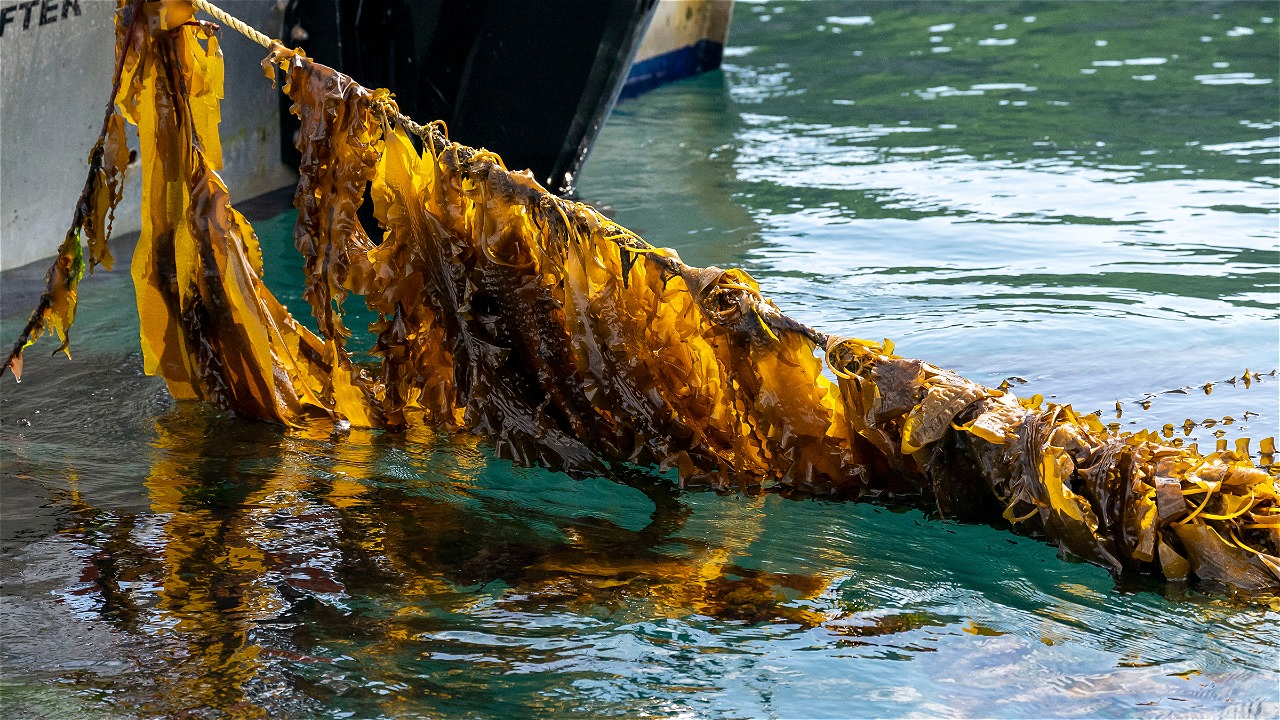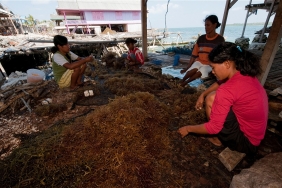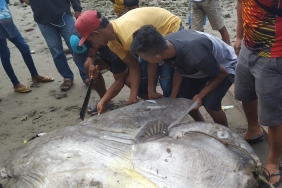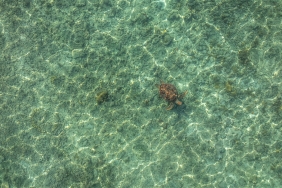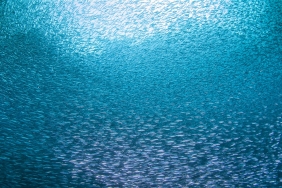ENTREPRENEURS LEARN ABOUT ECOLABELING, HOW TO IMPROVE INDONESIAN SEAWEED COMPETITIVENESS IN THE WORLD MARKET
By: Usmawati Anggita Sakti (Seafood Savers Communication Assistant)
How to produce seaweed responsibly? What are the seaweed farming activities that fall under environmentally friendly standards? WWF-Indonesia and SMART-Fish UNIDO (United Nations Industrial Development Organization) tried to answer these questions in a seminar.
A total of 27 participants from the Maritime and Fisheries Service of South Sulawesi Province, seaweed entrepreneurs in Indonesia and ASTRULI (Indonesian Seaweed Industry Association) filled the meeting room at a hotel in Menteng, Central Jakarta. The event was opened by representatives of the Directorate General of Marine and Fisheries Product Marketing. For two days (August 6-7, 2018), participants listened to and discussed the practice of seaweed cultivation and business activities that meet the principles of environmental sustainability.
With the in class training method,WF-Indonesia and UNIDO guided the discussion and presentation of the five principles of the ASC (Aquaculture Stewardship Council) - MSC (Marine Stewardship Council)¹ Seaweed Standard delivered by Patricia Bianchi.
"As seaweed production increased and the demand for certification increased, the ASC and MSC recognized the need for a standard that rewards those who use seaweed sustainably and benchmarks improvement programs. Understanding and ensuring a sustainable seaweed farming standard is pertinent and addressing the issues in its implementation in Indonesia is critical," said Patricia Bianchi, Seaweed Account Manager MSC and ASC - translated -
The Standard covers five core principles, namely (1) Sustainability of non-farmed seaweed populations; (2) Environmental impacts; (3) Effective management; (4) Social responsibility; and (5) Community relations and communication.
"The purpose of this seminar is to support seaweed farmers in Indonesia to understand the principles and standards of environmental sustainability in farming activities. The hope is that farming does not have a negative impact on the surrounding environment, biodiversity and society, and is fair to workers. The principles and standards discussed in this seminar are global standards, namely ASC-MSC," Cut Desyana, Aquaculture Coordinator WWF-Indonesia.
WWF's Sustainable Fisheries Platform Opens Space for Business Actors
From the seminar's Q&A between participants and speakers, seaweed producers realized the importance of meeting globally recognized environmental sustainability standards. The existence of ecolabels indicates that seaweed products have been tested for quality and the process of obtaining them in accordance with the principles of environmental sustainability, getting guarantees from the market and expanding market share.
Given that seaweed farming is one of Indonesia's largest export products, it is imperative that seaweed businesses at all levels of farming engage in responsible practices and secure commitments.
"Celebes Seaweed Group benefits greatly from being a member of Seafood savers because it has access to seminars and practical discussions that will unify the understanding of seaweed players in responsible seaweed farming," said Muchtar Saleh, Quality Control of Celebes Seaweed Group.
In addition to entrepreneurs in South Sulawesi, the Indonesian seaweed entrepreneurs association, ASTRULI, also revealed the trend of seaweed cultivation improvement programs important for the sustainability of its business.
"Following the seminar discussion, ecolabeling is a new era. While seaweed producers have been focusing on food security, we now realize that in the future, eco-label certification will become a sales standard. We welcome this trend and will certainly encourage its acceleration by also raising awareness on it," said Adrian Setiadi, Deputy Secretary General of ASTRULI.
"Through this seminar, our AIP Seafood Savers aquaculture improvement program will be more focused on the main requirements for obtaining ecolabels in order to maintain the sustainability and improve the quality of Takalar seaweed," added Muchtar Saleh, Quality Control Celebes Seaweed Group.
From the discussion, entrepreneurs have a significant role in the utilization and sustainability of natural resources. Joining various entrepreneurs and other stakeholders in this effort will certainly help accelerate the practice of environmentally friendly and sustainable seaweed farming.

